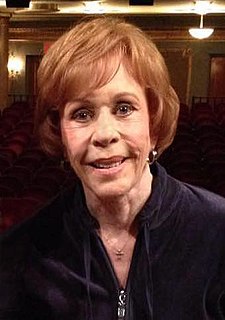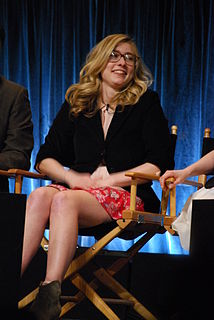A Quote by Carol Burnett
What I like to write about is stuff I know. I don't think I could write a novel. I don't think I have it in me to come up with those kinds of characters.
Related Quotes
The main thing you worry about is just coming up with songs at all. I don't sit down and write stuff like certain writers do. They think about what they are going to write first and then they write it. I just get what comes in at me. It's like I'm a musician and if I can keep my mitt on, I can catch the balls that come at me.
When you get an idea, so many things come in that one moment. You could write the sound of that idea, or the sound of the room it's in. You could write the clothes the character is wearing, what they're saying, how they move, what they look like. Instead of making up, you're actually catching an idea, for a story, characters, place, and mood - all the stuff that comes.
I have tons of stuff that, you know, seems like it's a well-constructed sentence but it is not how people talk, it's how people write. So that's why I think it's sometimes easier for me to write for actors 'cause I know what's frustrating about, you know, sentences that come out just perfect. Well, who talks like that? And who of us don't overlap each other? Except on the radio, hopefully.
The age of the book is not over. No way... But maybe the age of some books is over. People say to me sometimes 'Steve, are you ever going to write a straight novel, a serious novel' and by that they mean a novel about college professors who are having impotence problems or something like that. And I have to say those things just don't interest me. Why? I don't know. But it took me about twenty years to get over that question, and not be kind of ashamed about what I do, of the books I write.
I always think I know the way a novel will go. I write maps on oversized art pads like the kind I carried around in college when I was earnest about drawing. I need to have some idea of the shape of the novel, where its headed, so that I can proceed with confidence. But the truth is my characters start doing and saying things I don't expect.
One of the things when you write, well the way I write, is that you are writing your scenario and there are different roads that become available that the characters could go down. Screenwriters will have a habit of putting road blocks up against some of those roads because basically they can't afford to have their characters go down there because they think they are writing a movie or trying to sell a script or something like that. I have never put that kind of imposition on my characters. Wherever they go I follow.
Objectifying your own novel while writing it never really helps. Instead, I guess while you're writing you need to think: This is the novel I want to write. And when you're done you need to think: This is what the novel I wanted to write feels like and reads like and looks like. Other people might call it sweeping or small, but it's the book you chose.
I don't know how to write a novel in the world of cellphones. I don't know how to write a novel in the world of Google, in which all factual information is available to all characters. So I have to stand on my head to contrive a plot in which the characters lose their cellphone and are separated from technology.
If you don't like my book, write your own. If you don't think you can write a novel, that ought to tell you something. If you think you can, do. No excuses. If you still don't like my novel, find a book you do like. Life is too short to be miserable. If you do like my novels, I commend your good taste.



































